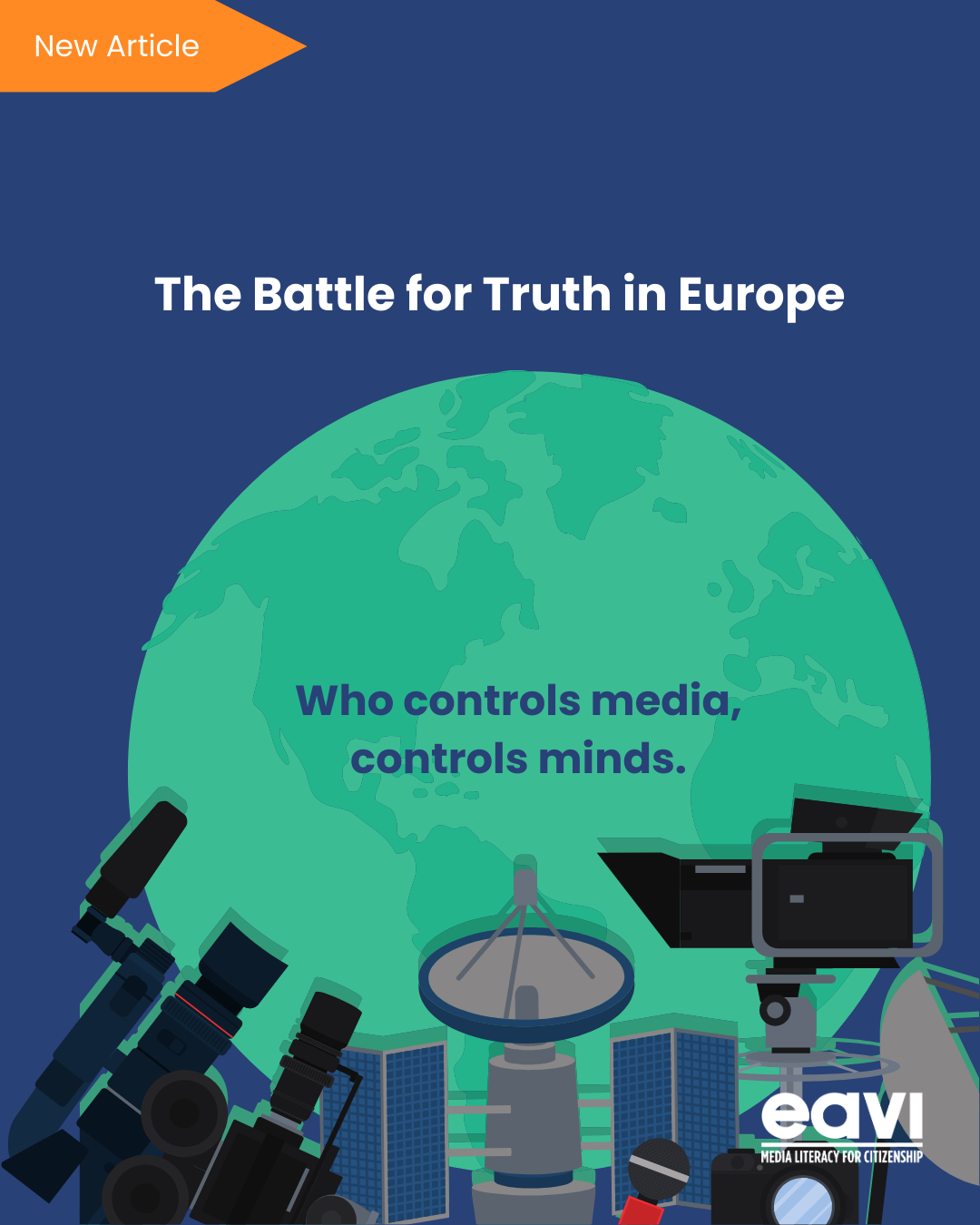Whenever the word Euroscepticism is mentioned I can already imagine that you think I am about to write that Euroscepticism can have different meanings and aspects.
Despite this being true [ref] https://eavi.eu/does-the-claim-about-the-lack-of-democracy-in-europe-count-as-euroscepticism/ [/ref], the crucial point and question is another one.
What is Euroscepticism’s enemy? Of course, everybody would answer saying the European Union, but is it really?
Even if this trend (can we even say craze?) can be put under the broad name of Euroscepticism, different factions under it do have different conceptions on what the fight against EU consists of.
Should we try to detect them?
Eurosceptics belonging to the right wing try to claim that:
- There is just one people corresponding to one country. The concept of European people cannot exist, therefore there is no sense in having the European Union, which doesn’t represent united people, but rather different people coming from different countries;
- National sovereignty is a priority, and the EU is an obstacle for that;
- Migration flows and open borders are threatening national identities.
Eurosceptics belonging to the left wing instead sustain that:
- The EU is just an economic project and the solidarity doesn’t exist among Member States;
- The EU and the euro are the causes of the economic crisis;
- The EU is not helping European people to reduce youth unemployment rate and general unemployment rate, creating a lost European generation who doesn’t feel a European identity.
Having said this, it is easily detectable from the few words used (European people, national sovereignty, national identity, solidarity) that the EU in itself hides a more profound concept, i.e. the European identity concept. Nations don’t feel threatened by the European institutions’ buildings or the several numbers of directives or regulations, but the constitution of an European identity and sense of community is likely to lead to a great challenge, as well as to a certain fear within national governments and politics.
Just ask yourself a simple question: what would Hungary, Poland, France (with its National Front), Italy and other countries be if their policy wasn’t centered around the fight against EU and migration problems?
If a European identity had existed, would national policies have been so important? Maybe at this point we were trying to destroy national governments instead of the EU.
Unfortunately, we also have to ask ourselves an additional question: why, after 60 years, an European identity doesn’t exist yet?
European identity is a problem in itself because the whole European project was built on a multi-national identity basis. The aim was to build a common and strong identity while replacing and weaken the old national identities. But it was also the case that they never disappeared.
Something made policy makers think that the identity would be a natural consequence of the EU integration process or was it just not in the EU agenda?
There is nothing like an European sense of citizenship that would define the obligations, responsibilities, duties and rights that Europeans have to one another beyond simply the wording of the different treaties that were signed.
What is clear though is that the great part of Eurosceptics and right wing parties is struggling to avoid the rise of an European people in itself, they are fighting against the wrong enemy or, even worse, they are not aware of what or who they need to resist.
I would like to leave you all to an open question: while it is generally assumed that European identity is an indispensable element for a successful EU, can a European identity exist apart from the EU itself? Would in this case right and left Eurosceptic claims be groundless?
Maybe this is the secret to destroy Euroscepticism, being aware of what we are fighting, if it’s just the EU, or the rise of a European people.
Whenever the word Euroscepticism is mentioned I can already imagine that you think I am about to write that Euroscepticism can have different meanings and aspects.
Despite this being true [ref] https://eavi.eu/does-the-claim-about-the-lack-of-democracy-in-europe-count-as-euroscepticism/ [/ref], the crucial point and question is another one.
What is Euroscepticism’s enemy? Of course, everybody would answer saying the European Union, but is it really?
Even if this trend (can we even say craze?) can be put under the broad name of Euroscepticism, different factions under it do have different conceptions on what the fight against EU consists of.
Should we try to detect them?
Eurosceptics belonging to the right wing try to claim that:
- There is just one people corresponding to one country. The concept of European people cannot exist, therefore there is no sense in having the European Union, which doesn’t represent united people, but rather different people coming from different countries;
- National sovereignty is a priority, and the EU is an obstacle for that;
- Migration flows and open borders are threatening national identities.
Eurosceptics belonging to the left wing instead sustain that:
- The EU is just an economic project and the solidarity doesn’t exist among Member States;
- The EU and the euro are the causes of the economic crisis;
- The EU is not helping European people to reduce youth unemployment rate and general unemployment rate, creating a lost European generation who doesn’t feel a European identity.
Having said this, it is easily detectable from the few words used (European people, national sovereignty, national identity, solidarity) that the EU in itself hides a more profound concept, i.e. the European identity concept. Nations don’t feel threatened by the European institutions’ buildings or the several numbers of directives or regulations, but the constitution of an European identity and sense of community is likely to lead to a great challenge, as well as to a certain fear within national governments and politics.
Just ask yourself a simple question: what would Hungary, Poland, France (with its National Front), Italy and other countries be if their policy wasn’t centered around the fight against EU and migration problems?
If a European identity had existed, would national policies have been so important? Maybe at this point we were trying to destroy national governments instead of the EU.
Unfortunately, we also have to ask ourselves an additional question: why, after 60 years, an European identity doesn’t exist yet?
European identity is a problem in itself because the whole European project was built on a multi-national identity basis. The aim was to build a common and strong identity while replacing and weaken the old national identities. But it was also the case that they never disappeared.
Something made policy makers think that the identity would be a natural consequence of the EU integration process or was it just not in the EU agenda?
There is nothing like an European sense of citizenship that would define the obligations, responsibilities, duties and rights that Europeans have to one another beyond simply the wording of the different treaties that were signed.
What is clear though is that the great part of Eurosceptics and right wing parties is struggling to avoid the rise of an European people in itself, they are fighting against the wrong enemy or, even worse, they are not aware of what or who they need to resist.
I would like to leave you all to an open question: while it is generally assumed that European identity is an indispensable element for a successful EU, can a European identity exist apart from the EU itself? Would in this case right and left Eurosceptic claims be groundless?
Maybe this is the secret to destroy Euroscepticism, being aware of what we are fighting, if it’s just the EU, or the rise of a European people.
Whenever the word Euroscepticism is mentioned I can already imagine that you think I am about to write that Euroscepticism can have different meanings and aspects.
Despite this being true [ref] https://eavi.eu/does-the-claim-about-the-lack-of-democracy-in-europe-count-as-euroscepticism/ [/ref], the crucial point and question is another one.
What is Euroscepticism’s enemy? Of course, everybody would answer saying the European Union, but is it really?
Even if this trend (can we even say craze?) can be put under the broad name of Euroscepticism, different factions under it do have different conceptions on what the fight against EU consists of.
Should we try to detect them?
Eurosceptics belonging to the right wing try to claim that:
- There is just one people corresponding to one country. The concept of European people cannot exist, therefore there is no sense in having the European Union, which doesn’t represent united people, but rather different people coming from different countries;
- National sovereignty is a priority, and the EU is an obstacle for that;
- Migration flows and open borders are threatening national identities.
Eurosceptics belonging to the left wing instead sustain that:
- The EU is just an economic project and the solidarity doesn’t exist among Member States;
- The EU and the euro are the causes of the economic crisis;
- The EU is not helping European people to reduce youth unemployment rate and general unemployment rate, creating a lost European generation who doesn’t feel a European identity.
Having said this, it is easily detectable from the few words used (European people, national sovereignty, national identity, solidarity) that the EU in itself hides a more profound concept, i.e. the European identity concept. Nations don’t feel threatened by the European institutions’ buildings or the several numbers of directives or regulations, but the constitution of an European identity and sense of community is likely to lead to a great challenge, as well as to a certain fear within national governments and politics.
Just ask yourself a simple question: what would Hungary, Poland, France (with its National Front), Italy and other countries be if their policy wasn’t centered around the fight against EU and migration problems?
If a European identity had existed, would national policies have been so important? Maybe at this point we were trying to destroy national governments instead of the EU.
Unfortunately, we also have to ask ourselves an additional question: why, after 60 years, an European identity doesn’t exist yet?
European identity is a problem in itself because the whole European project was built on a multi-national identity basis. The aim was to build a common and strong identity while replacing and weaken the old national identities. But it was also the case that they never disappeared.
Something made policy makers think that the identity would be a natural consequence of the EU integration process or was it just not in the EU agenda?
There is nothing like an European sense of citizenship that would define the obligations, responsibilities, duties and rights that Europeans have to one another beyond simply the wording of the different treaties that were signed.
What is clear though is that the great part of Eurosceptics and right wing parties is struggling to avoid the rise of an European people in itself, they are fighting against the wrong enemy or, even worse, they are not aware of what or who they need to resist.
I would like to leave you all to an open question: while it is generally assumed that European identity is an indispensable element for a successful EU, can a European identity exist apart from the EU itself? Would in this case right and left Eurosceptic claims be groundless?
Maybe this is the secret to destroy Euroscepticism, being aware of what we are fighting, if it’s just the EU, or the rise of a European people.








































































































































































